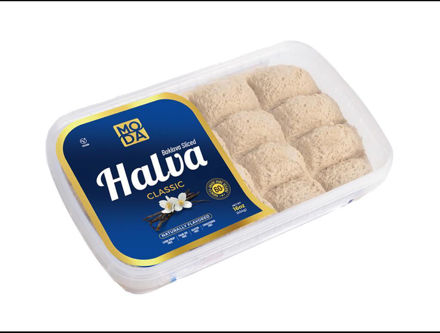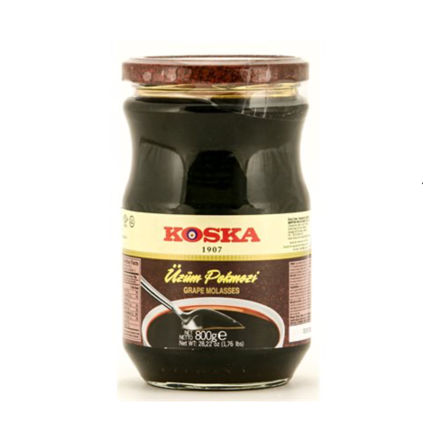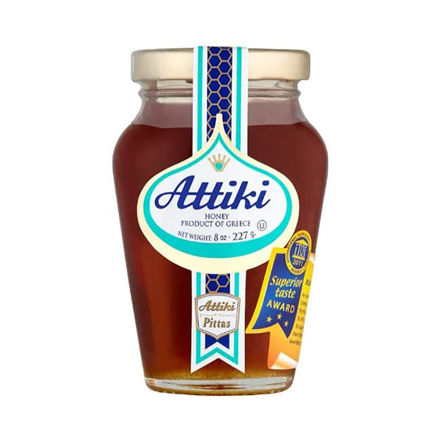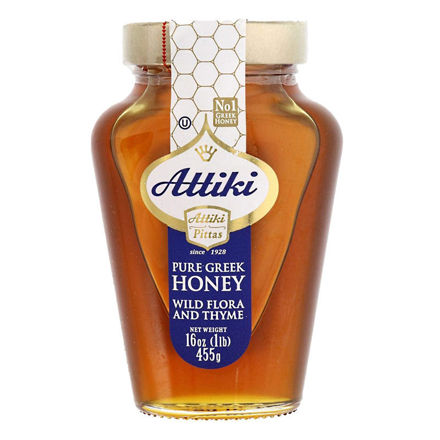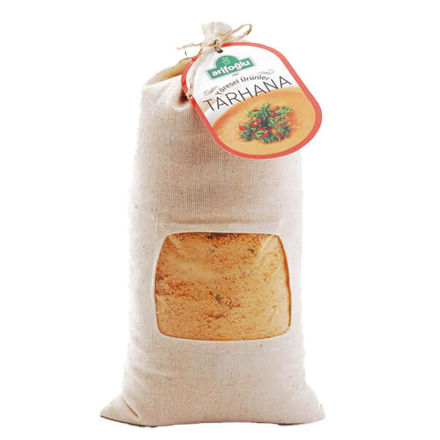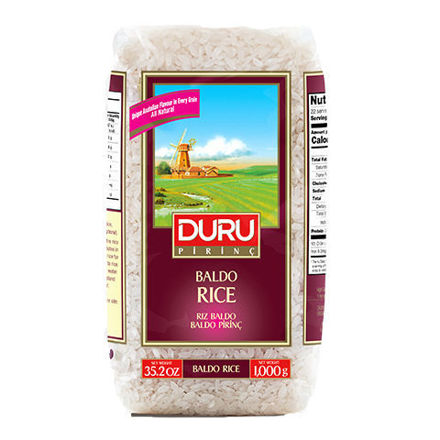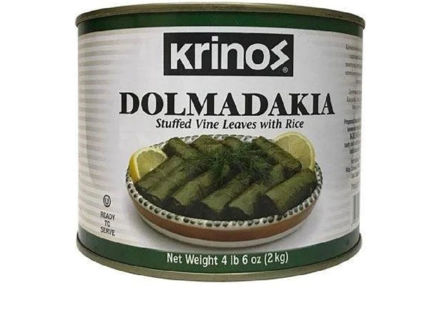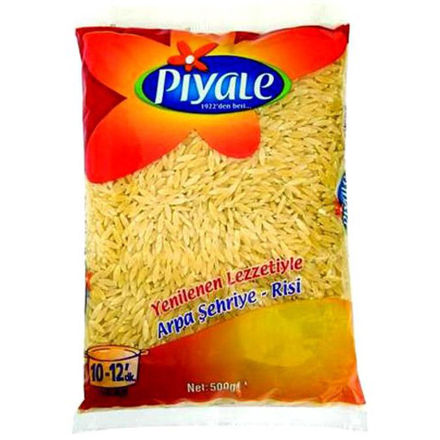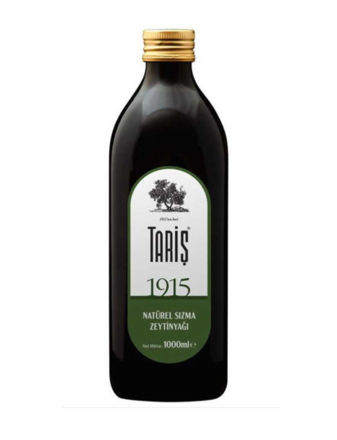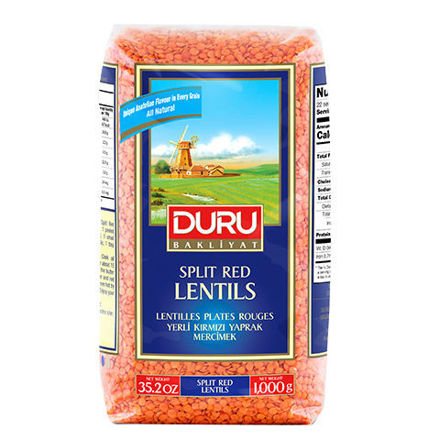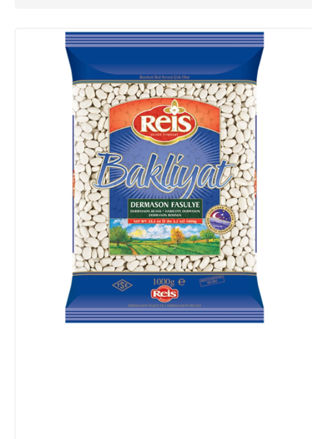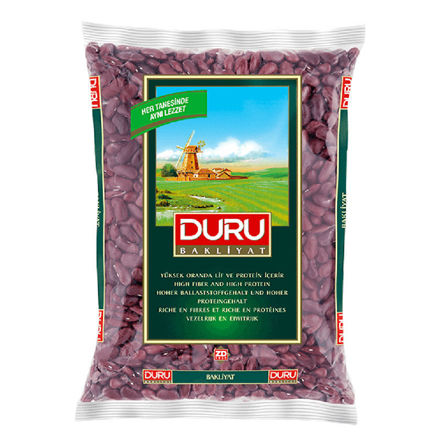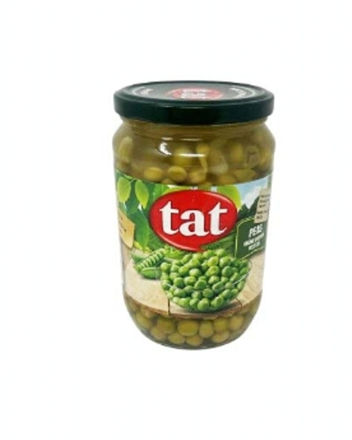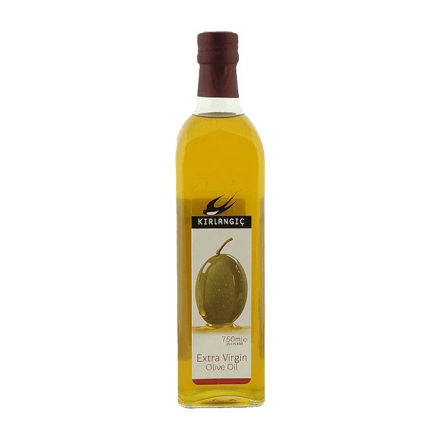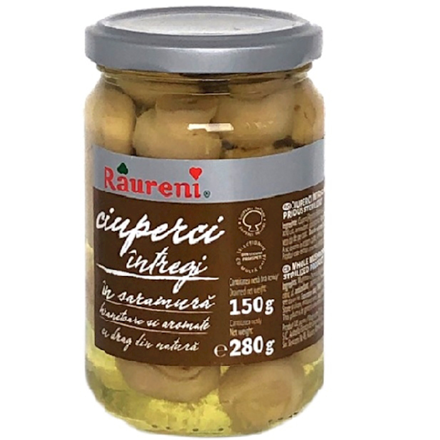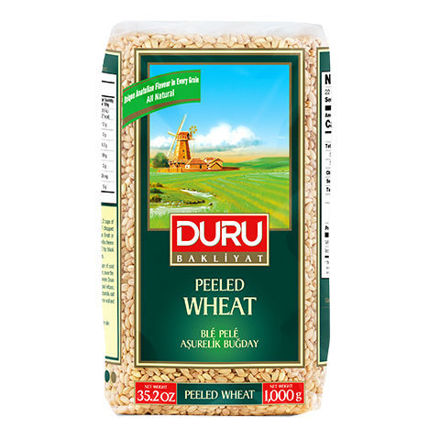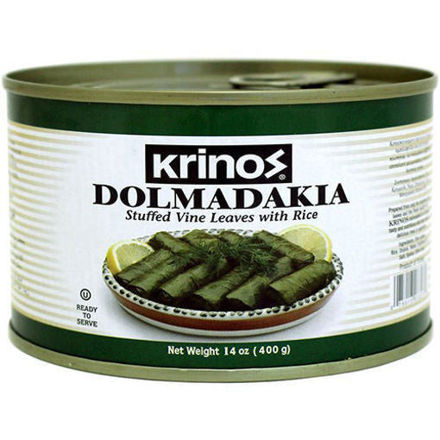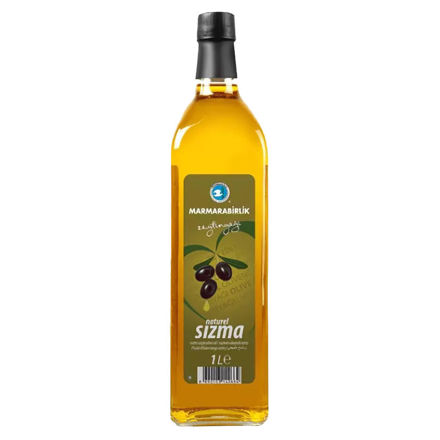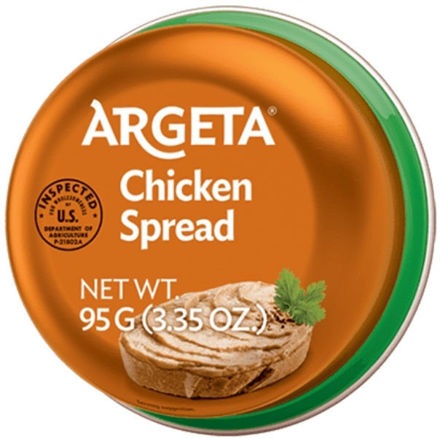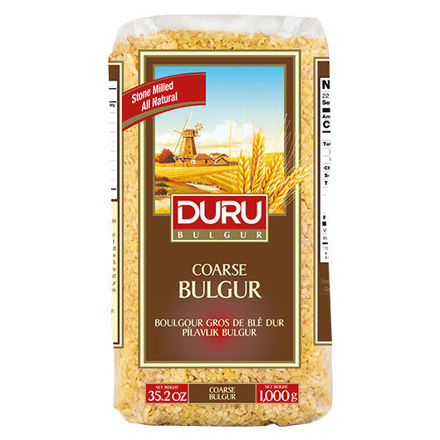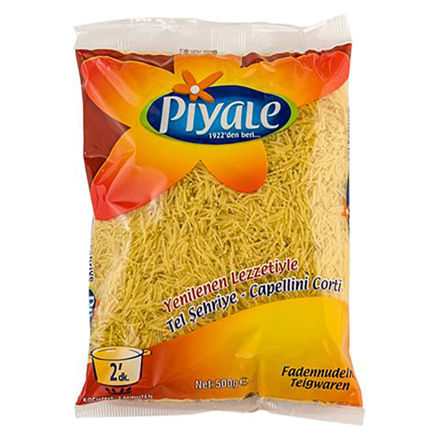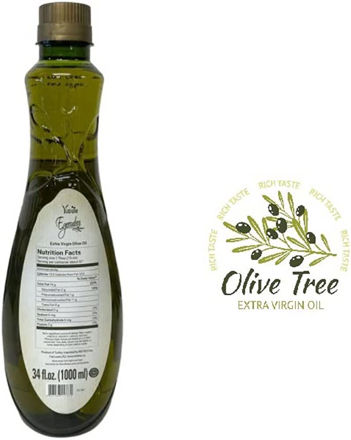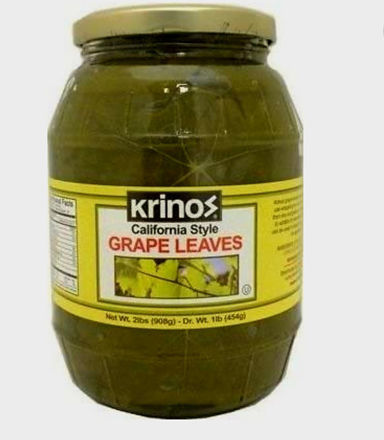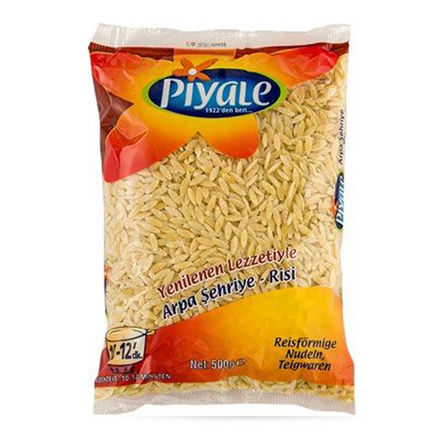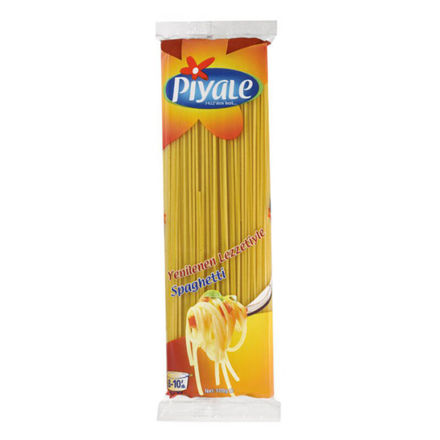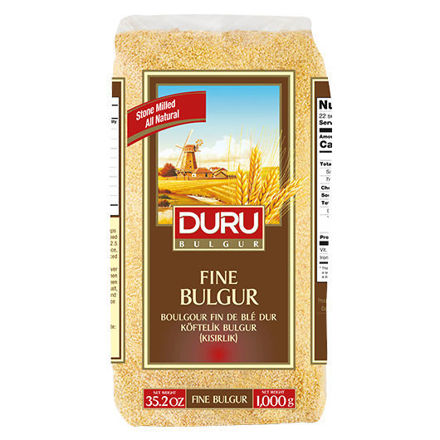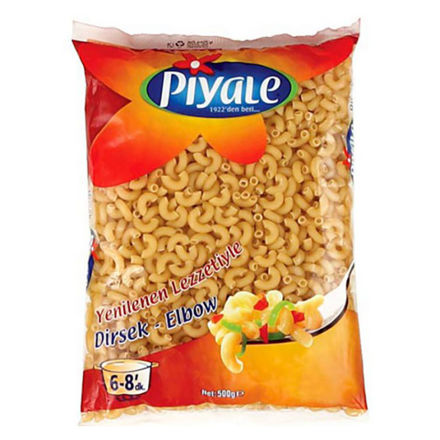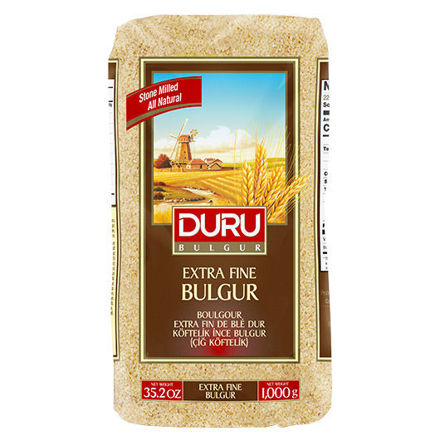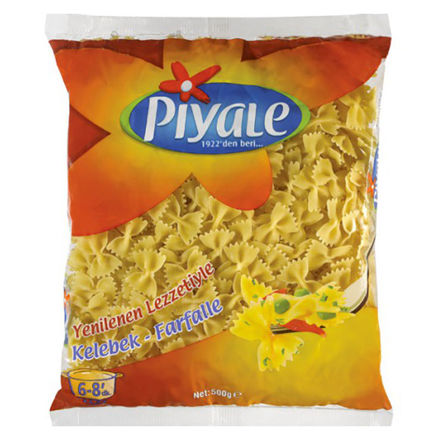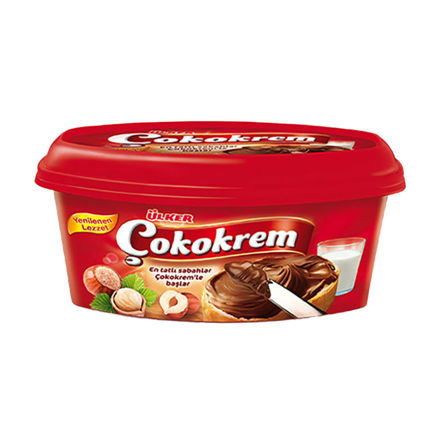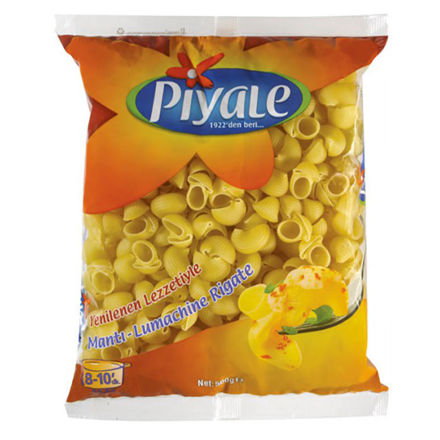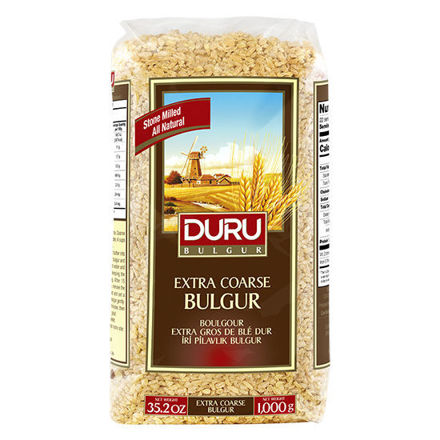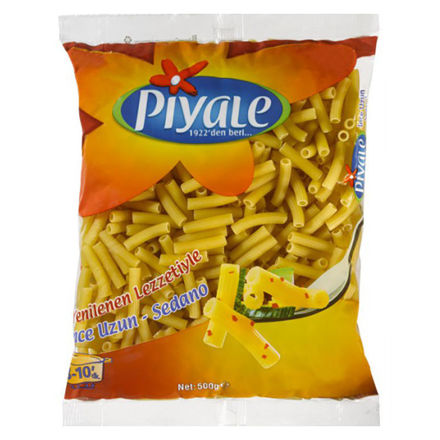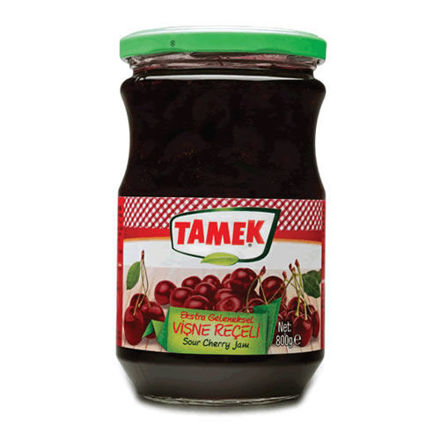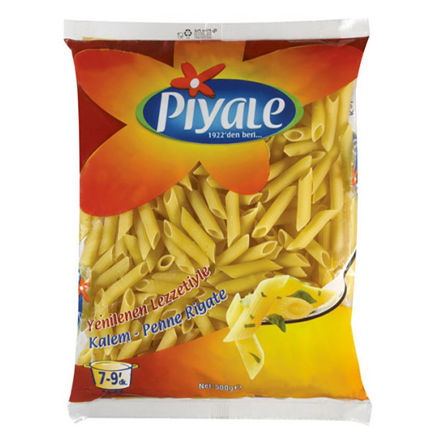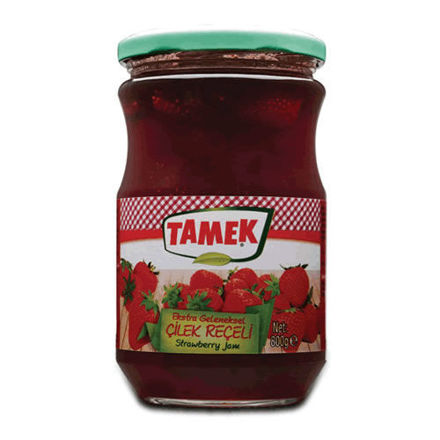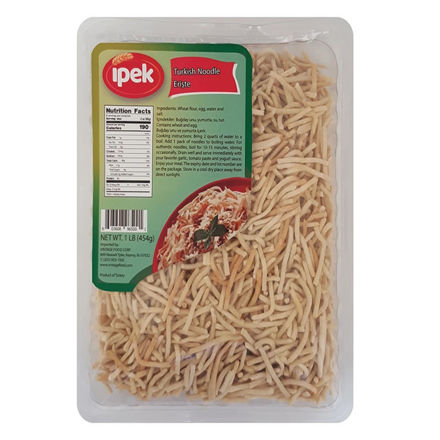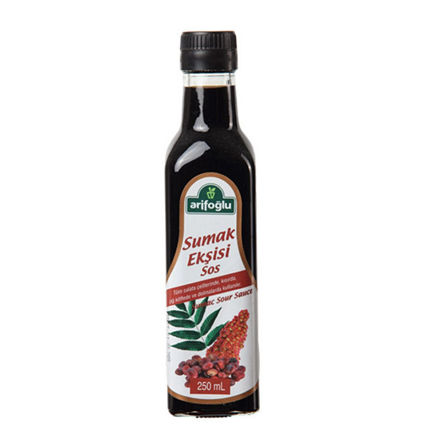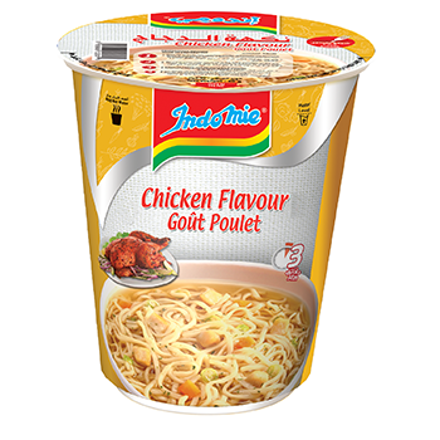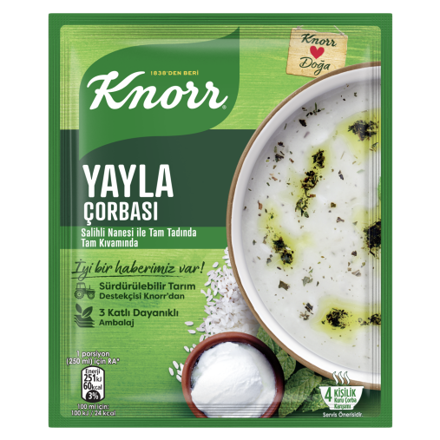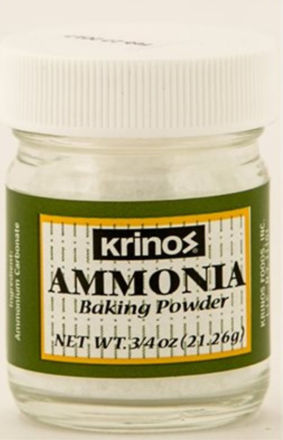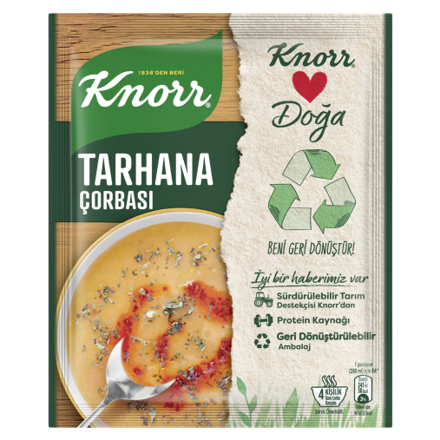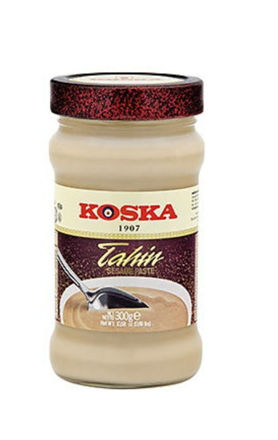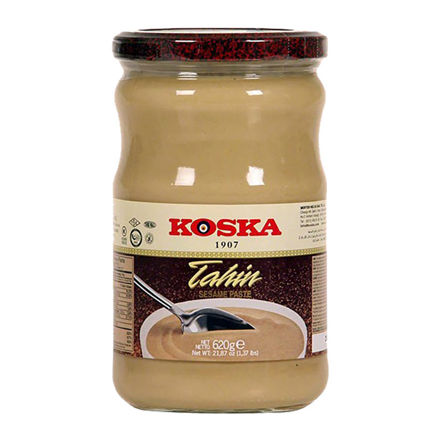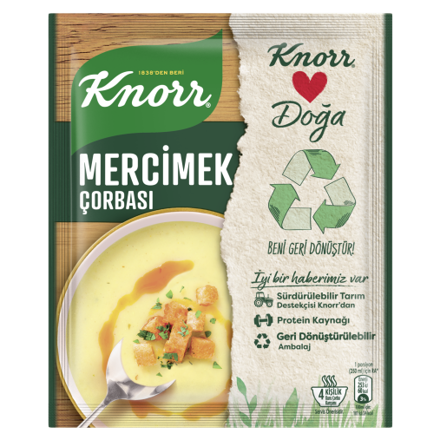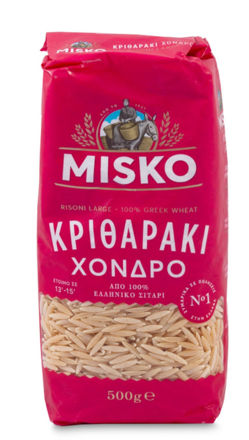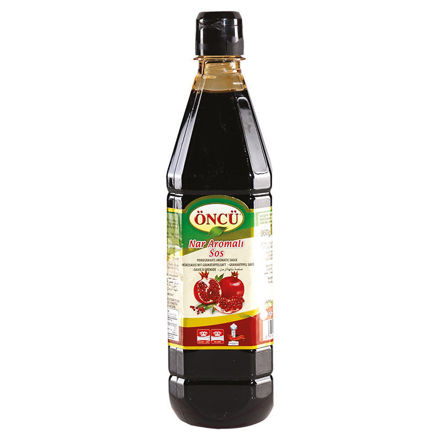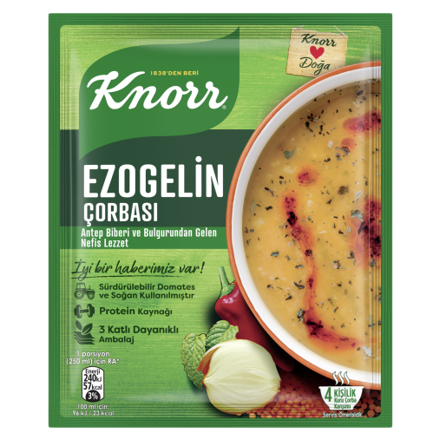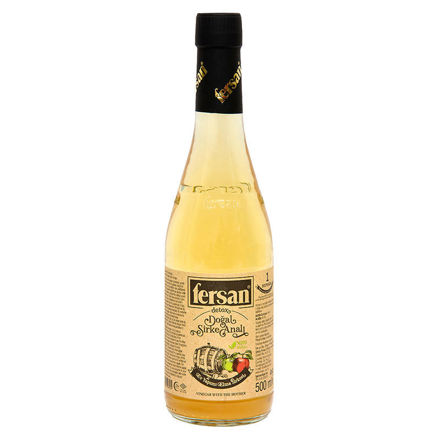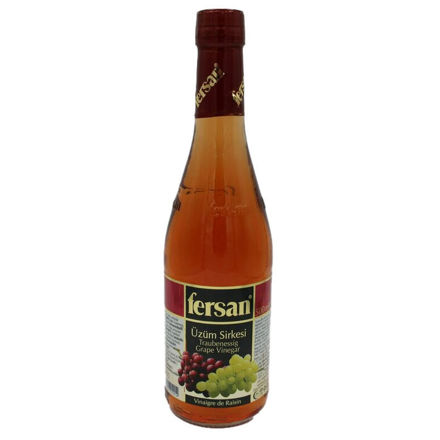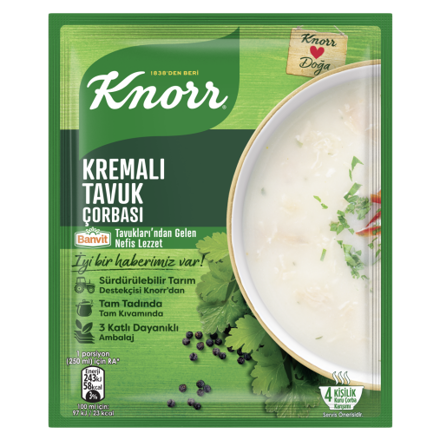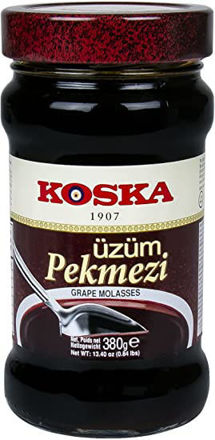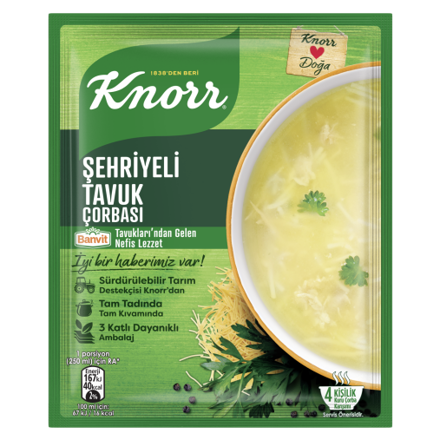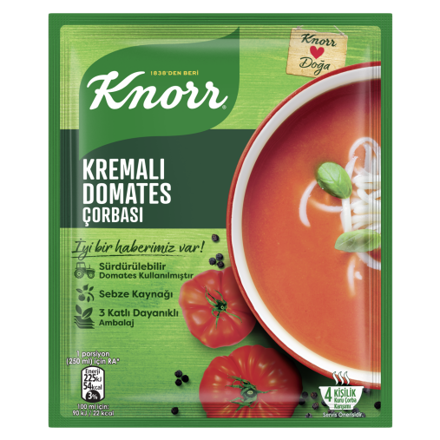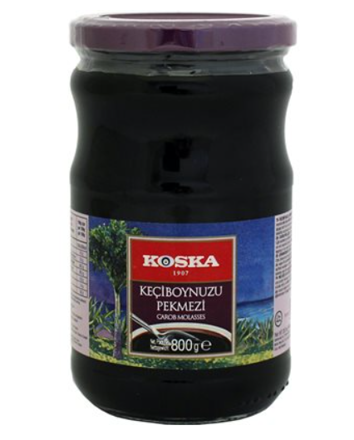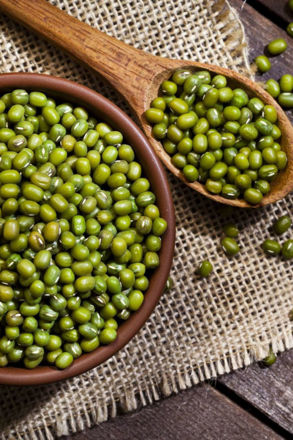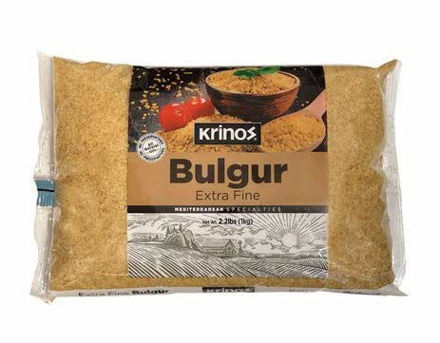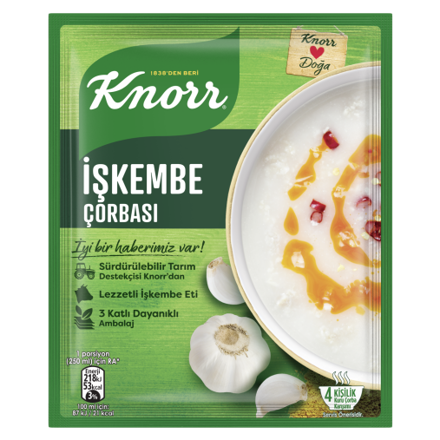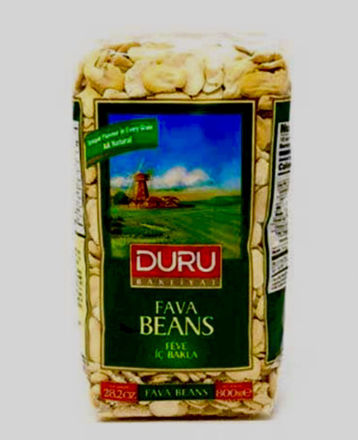Pantry
MODA tahini halva is a traditional Turkish dessert made from tahini and white sugar prepared by crushing the best quality sesame in special stone mills, with the experience of craftsmanship since 1907. With its filling, nutritious, healthy and energizing properties, it has been a preferred dessert for different reasons for centuries. It is a dessert preferred by those who prefer to consume a healthy dessert, athletes who need energy, young people, expectant babies, breastfeeding and mothers with growing children.
$5.99 $6.99
Koska products are produced without compromising on quality. Molasses is produced in the factory in Simav, Kütahya, and is not boiled for a long time instead of old methods.Grape Molasses, or Üzüm Pezmez in Turkish, has been a staple pantry ingredient in much of the Mediterranean and Middle East since the 11th century. Before the advent of sugar, pezmez and honey were used as sweetening agents. Koska Grape Molasses, derived only from the concentrated juice of grapes, is rich in flavor and an excellent source of calcium, iron, potassium and magnesium. To enjoy a healthier version of peanut butter and jelly, add a generous swirl of Koska Grape Molasses into a bowl of creamy tahini (sesame seed paste) and dip pieces of crusty bread into the mixture. Koska Grape Molasses is also delicious with Turkish or Greek yogurt and pancakes or waffles with fruit. Once you start experimenting with this luxuriously rich syrup, you might want to use it in salad dressings, meat and poultry marinades, and your favorite baked recipes.
$13.99 $17.99
ATTIKI Classic Honey has been the favorite Greek honey across the world since 1928. It's familiar and awarded flavor, is a combination of premium selected Greek honey varieties from wildflowers, herbs, forest and thyme collected from all over Greece.
$9.99
ATTIKI Classic Honey has been the favorite Greek honey across the world since 1928. It's familiar and awarded flavor, is a combination of premium selected Greek honey varieties from wildflowers, herbs, forest and thyme collected from all over Greece.
$16.99
Tarhana is a traditional, spicy Turkish soup common throughout Anatolia. It is also the name for the dry pulse made from a fermented mixture of plain yogurt, flour, and vegetables that are used as a base for the soup that is a staple in many parts of Turkey. It is prepared by mixing the desired amount of crumbled tarhana with boiling water, milk, butter and spices and cooking it over a low flame.
$11.99 $13.99
Baldo rice is assumed to be the best quality type of rice grown in Turkey. Baldo rice, grown in Balıkesir Region of Turkey, is commonly used in pilafs. Despite its superior taste compared to other type of rice, baldo is hard to cook and adjust its water to rice ratio. In baldo rice, Duru only packs Turkish baldo and do not pack imported baldo rice.
$9.99 $11.99
Krinos, Dolmas Stuffed Grape Leaves with Rice, Mediterranean Herbs in Sunflower Oil – Super Tasty Ready to Eat Vegan Rolls - Traditional Turkish Recipe – Dolmades Can
$15.99 $19.99
Piyale brand which has been the indispensable flavor of Turkish tables since the first pasta grain, offers products obtained from “carefully selected durum wheat” with high technology. Filiz products that do not dough and do not stick and give the same perfect result every time; With its taste, consistency and quality, it appeals to those who care about the palate and those who love pasta. Filiz's classic pasta varieties are ideal foods for anyone who wants to eat healthy to enrich their meals; You can prepare tables that are suitable for you and your family's taste, both simply and with various sauces.
$3.99
Taris 1915 extra-virgin olive oil is produced from olives harvested in North and South Aegean region of Turkey. It is produced as first cold pressed with the max acidity level 0.8%. It is suitable for use in salads, sauces, and all hot and cold dishes.
$25.99 $31.99
Red split lentils are obtained by peeling the outer shell of the raw lentil, breaking the grain in half and then oiling the inner lentil using cottonseed oil. Its consumption is very common in Turkey and South East Asia. Duru only packs lentils grown in South East region of Turkey.
$8.99 $9.99
White kidney bean is a kind of Turkish bean whose grain color is white and whose grain shape is kidney. This type of bean is mid-sized with a caliber of 8 mm and is grown in Karaman and Konya provinces of Turkey which are famous for the superior flavor of a bean. Another difference of this region’s bean is that they do not release shells when cooked. White kidney bean is the most common type of bean that is consumed in Turkey.
$10.99
The homeland of red beans, which has a history of 8000 years, is Peru. Red beans, which are found in many culinary cultures, especially in American and Indian cuisines, are produced and consumed in many countries today. It contains high protein, fiber, iron, phosphorus and potassium.
$12.99 $13.99
It is very easy to find practical solutions for cooking and making your life easier in the kitchen! With the Melis brand Vegetables
$6.99
Cold pressed from carefully tended olives growing in the Ayvalik region of Turkey, on the sunny Aegean Sea coast, Kirlangic Extra Virgin Olive Oil (EVOO) is a culinary treasure. Considered the “motherland” of olives, with 2.5 million olive trees in cultivation, Ayvalik is renowned for its exceptional EVOO. Kirlangiç EVOO has a light flavor and rich texture that will enliven any dish. Perfect for salads, spreads and dips, and delicious eaten with warm bread, our EVOO is worth savoring every day.
$17.99 $19.99
Unlike bulgur, peeled wheat is made from soft wheat. It is produced by cleaning and peeling the cover of the wheat. peeled wheat is commonly used in Turkey and Middle East. The whole peeled wheat is called Harish while the broken one is called Jerish. The common name of peeled wheat in Turkey is “Wheat for Noah’s Puding”. It is used in a traditional dessert which is consumed during the religious month of Muharram in Islam.
$8.99 $10.99
Rich in fiber and essential vitamins and nutrients, grape leaves are a staple in pantries throughout the Mediterranean. We hand-select only the most tender leaves of Greek grape vines for our flavorful Dolmadakia, also known as Stuffed Grape Leaves. Krinos Dolmadakias are stuffed with a delicious blend of rice, herbs and spices. A classic component of Greek and Turkish meze tables, stuffed grape leaves are also popular in Middle Eastern platters, enjoyed with hummus, baba ganoosh and olives. Simply drizzle with olive oil and lemon and serve.
$5.99 $6.99
It is obtained by applying mechanical or physical processes such as washing, crushing, kneading, centrifugation and filtration processes in a thermal environment that will not cause any change in its natural qualities from the olive tree fruit, which is suitable for the characteristics of its class in terms of its physical, chemical and sensory properties and can be consumed as food in its natural state. oil.
$19.99 $20.99
A classic that has remained a favorite for 55 years. Made from carefully selected cuts of chicken meat, dairy and soya protein & natural spices. A product free of flavor enhancers, free of artificial colors, free of preservatives and GMO free .
$13.99 $22.99
Coarse bulgur is the most common and famous type of bulgur both in the World and Turkey. The grain size of coarse bulgur is from 2,0 to 2,8 mm and it is the 3# size of the Duru Bulgur.
$5.99 $6.99
Capellini Cort are short, thin vermicelli noodles classically used in soups and pilafs. At Piyale, we have been making traditional pasta - or “makarna” - in Turkey since 1922. Our delicate short angel hair pasta noodles (Tel Sehriye) are made with Turkish Durum wheat semolina and soft wheat semolina.
$3.99
Extra virgin olive oil is like the fruit juice of the olive tree. It is the most natural and aromatic form of olive oil that brings the health of nature to our tables. You can use Yudum Extra Virgin Olive Oil, which we offer you with the high quality and control standards of Yudum , one of the best olives of the Aegean, especially in Ayvalık and the Gulf region, in all your meals, especially starters, salads and breakfasts, to get a better intense and aromatic taste. .
$24.99 $26.99
Grape Leaves are a mainstay in most Middle Eastern and Eastern European pantries. We pick only the most tender grape vine leaves for Krinos Grape Leaves. Rich in fiber, essential vitamins and nutrients, grape leaves are ideal for making Dolmadakia, a popular Greek dish. For a classic preparation, stuff them with rice, chopped onions, herbs and spices. For variety, try stuffing them with cooked quinoa, ground meat, onion, lightly toasted pine nuts and herbs.
$7.99 $8.99
Orzo are tiny pieces of pasta resembling large flat pieces of rice, traditionally used in pilafs, soups, salads, warm side dishes and one-plate meals. At Piyale, we have been making traditional pasta (“makarna” in Turkish) since 1922 using high-quality Durum and soft wheat semolina. Orzo made with Durum wheat tends to hold its shape like al dente pasta, while orzo made with soft wheat has a more risotto-like texture.
$3.99
While scholars attribute the origin of noodles to ancient China, the dried pasta we know and love today is 100% Mediterranean fare! Of all the shapes and sizes of pasta, none is more classic than spaghetti. At Piyale, we have been making traditional pasta in Turkey since 1922, with high-quality Durum and soft wheat semolina. Piyale Spaghetti is the perfect vehicle for any sauce you can dream of! Enjoy al dente with garlic and olive oil (aglio e olio); clams, olive oil, garlic and parsley (alle vongole); tomato, capers, Kalamata olives and garlic (alla puttanesca); ground meat and tomato sauce (Bolognese) or with all-time classic meatballs. Chef’s tip: after boiling the pasta, conserve a little of the cooking liquid and add it along with the spaghetti, into the sauce you’re serving. Mix to coat all of the pasta and serve with grated cheese (optional). Start working your magic with our spaghetti and let your imagination soar.
$5.99
Fine bulgur is a popular kind of bulgur in the world which is used in meatballs and salad like “tabbouleh”, is popular all over the world. Fine bulgur is the 5# of yellow bulgurs in size.
$5.99 $6.99
While scholars attribute the early origins of noodles to ancient China, it was in the Mediterranean that the dried pasta we know and love today was refined. Pasta is one of the world’s most beloved comfort foods and a wonderful blank culinary canvas for an almost endless array of warm, baked and cold preparations. The first recorded baked mac and cheese recipes date to 14th century England and Italy. Elbow Macaroni – small, curved tubes of pasta – are the noodles used in classic mac and cheese recipes for centuries.
$5.99
Extra Fine Bulgur is smaller in size than fine bulgur. Since it is smaller in size, it is more preferable for meatballs where bulgur is kneaded. Extra Fine can be mixed with fine bulgur to be used in salads. It is the smallest size of yellow bulgurs.
$5.99
Pasta is one of the world’s most beloved and versatile comfort foods! While the first recorded evidence of noodles dates to ancient China, the dried pasta we know and love today was first refined in the Mediterranean. Farfalle, from the Italian word for “butterflies,” are an iconic and fanciful pasta shape. At Piyale, we have been making traditional pasta in Turkey since 1922, with Durum and soft wheat semolina. PIyale Farfalle are the perfect vehicle to absorb the goodness of oil, cream, tomato and meat-based pasta sauces - from pesto and marinara to alfredo and Bolognese.
$5.99
Hazelnut Spread is a delicious product obtained by roasting carefully selected hazelnuts, mixing them with sugar, naturally identical vanilla flavor and cocoa and crushing them.
$8.99 $9.99
While scholars attribute the early origins of noodles to ancient China, it was in the Mediterranean that the dried pasta we know and love today was refined. Pasta is one of the world’s most beloved comfort foods and a wonderful blank culinary canvas for an almost endless array of warm, baked and cold preparations. While each country has its own pasta-making traditions and regional specialties, certain classic noodle shapes like Lumachine Rigate, small snail shells, transcend borders and time. Turkey is ranks fifth in worldwide pasta production, and since 1922 Piyale has been one of the leading pasta brands in Turkey.
$5.99
Extra Coarse Bulgur, which is bigger than course bulgur, looks like a half of a wheat grain. This bulgur can be used in soups and stuffing as a substitute to rice.
$5.99
While scholars attribute the early origins of noodles to ancient China, it was in the Mediterranean that the dried pasta we know and love today was refined. Pasta is one of the world’s most beloved comfort foods and a wonderful blank culinary canvas for an almost endless array of warm, baked and cold preparations. Piyale Sedano Pasta, which is long and thin, is made from the most delicious wheat semolina. It has no additives and artificial flavors in its content. You can add various sauces to your Sedano pasta.
$5.99
Tamek Jams, preventing many diseases as the nutritious source of strength and energy, are sweet guests of our houses with wide range of products. Jams and Marmalades, which are head crowns at our breakfast and indispensable complementary of our desserts, carry the health and taste obtained from the fruits to our tables. You can set excellent tables and make great desserts for your children and the family.
$9.99
While scholars attribute the early origins of noodles to ancient China, it was in the Mediterranean that the dried pasta we know and love today was refined. Pasta is one of the world’s most beloved comfort foods and a wonderful blank culinary canvas for an almost endless array of warm, baked and cold preparations. Derived from the Latin word “penna,” meaning “pen,” Penne Rigate are hollow cylindrical-shaped pasta noodles with external ridges and diagonal openings at both ends to mimic the tip of a fountain pen.
$5.99
Tamek Jams, preventing many diseases as the nutritious source of strength and energy, are sweet guests of our houses with wide range of products. Jams and Marmalades, which are head crowns at our breakfast and indispensable complementary of our desserts, carry the health and taste obtained from the fruits to our tables. You can set excellent tables and make great desserts for your children and the family.
$9.99
Flour, village eggs, cow's milk, salt and local olive oil are used for producing homemade natural noodle. The obtained dough is then rolled out and takes the form of layers. The dough, which is kept in this way for a while, is then put on top of each other and cut. The noodles, which are left to be dried in the sun after cutting, are put into jars not to be airtight after they harden enough. No additives are used in the production of natural village noodles. It is prepared completely without additives and as homemade.
$4.99
It is an essential ingredient in southern Turkish cuisine and widely used in Middle Eastern cooking. It has delicioussour and tangy taste for your meals and salads.
$6.99 $7.99
Indomie Chicken flavour is the first legendary Indomie variant. The taste is delightful, warm, and savory, reminds you of the classic home-made chicken soup
$3.29 $2.99
A steaming bowl of Turkish soup or "çorba", accompanied by fresh, crusty bread is like a warm hug from mom. You wouldn't be able to think of better comfort food, especially during the cold, rainy days of winter. In Turkey, soup is served as the first course at both lunch and dinner and is also a common choice for breakfast in many Anatolian homes. During the holy month of Ramadan, the daily fast is always broken with soup, fresh bread, olives, and cheese—light fare that is easy on the stomach after a day of fasting.
$2.99
Before the advent of baking powder and baking soda, “Baker’s Ammonia,” or ammonium carbonate, was the main leavening agent in the 19th century. Many classic Greek and Middle Eastern recipes call for ammonia, and for good reason! Use Krinos Baker’s Ammonia instead of baking soda or baking powder in your favorite low-moisture baked goods – like thin cookies, pastries, bread sticks and crackers – and you’ll find the end product has a lighter and crunchier crumb. Because our Ammonia is heat activated (unlike baking soda or powder) your baked products won’t start to rise until what you’re preparing goes into the oven. While you will smell the scent of ammonia during baking, it will quickly disappear! Your baked goods will have a fabulous crispness that isn’t duplicated with baking soda or powder – and without the soapy-tasting residue.
$3.99 $5.99
It is an essential ingredient in southern Turkish cuisine and widely used in Middle Eastern cooking. The concentrated flavor of pomegranates molasses adds so much goodness and flavor to salads, casseroles, dips and desserts. In addition of its delicious and natural sweet and tangy taste, pomegranate is also very rich in nutrient, packed with antioxidants, vitamins and minerals.
$12.99 $14.99
A steaming bowl of Turkish soup or "çorba", accompanied by fresh, crusty bread is like a warm hug from mom. You wouldn't be able to think of better comfort food, especially during the cold, rainy days of winter. In Turkey, soup is served as the first course at both lunch and dinner and is also a common choice for breakfast in many Anatolian homes. During the holy month of Ramadan, the daily fast is always broken with soup, fresh bread, olives, and cheese—light fare that is easy on the stomach after a day of fasting.
$2.99
Tahini is produced from 100% sesame seeds and Koska tahini products are completely natural. It does not contain additives. Tahini is a food rich in fat content. Koska produces tahini from 100% pure sesame in its own facilities, using the latest technology and in accordance with hygienic rules. Tahini does not deteriorate if kept at room temperature. It does not undergo any changes except that the oil rises to the top. If this happens, you can quickly shake the jar.
$8.99
Tahini is produced from 100% sesame seeds and Koska tahini products are completely natural. It does not contain additives. Tahini is a food rich in fat content. Koska produces tahini from 100% pure sesame in its own facilities, using the latest technology and in accordance with hygienic rules. Tahini does not deteriorate if kept at room temperature. It does not undergo any changes except that the oil rises to the top. If this happens, you can quickly shake the jar.
$14.99
A steaming bowl of Turkish soup or "çorba", accompanied by fresh, crusty bread is like a warm hug from mom. You wouldn't be able to think of better comfort food, especially during the cold, rainy days of winter. In Turkey, soup is served as the first course at both lunch and dinner and is also a common choice for breakfast in many Anatolian homes. During the holy month of Ramadan, the daily fast is always broken with soup, fresh bread, olives, and cheese—light fare that is easy on the stomach after a day of fasting.
$2.99
Orzo are very small pasta .orzo is also a classic ingredient in the iconic soup, pilafs, stuffed veggies...
$2.99 $3.99
It is an essential ingredient in southern Turkish cuisine and widely used in Middle Eastern cooking. The concentrated flavor of pomegranates molasses adds so much goodness and flavor to salads, casseroles, dips and desserts. In addition of its delicious and natural sweet and tangy taste, pomegranate is also very rich in nutrient, packed with antioxidants, vitamins and minerals.
$8.99
A steaming bowl of Turkish soup or "çorba", accompanied by fresh, crusty bread is like a warm hug from mom. You wouldn't be able to think of better comfort food, especially during the cold, rainy days of winter. In Turkey, soup is served as the first course at both lunch and dinner and is also a common choice for breakfast in many Anatolian homes. During the holy month of Ramadan, the daily fast is always broken with soup, fresh bread, olives, and cheese—light fare that is easy on the stomach after a day of fasting.
$2.99
Vinegar with the mother; occurs thru the bacterias during the production of the vinegar and has a totally natural structure. It’s rich in proteins, contains enzymes, antioxidants and useful bacterias. Vinegar with the mother is specially produced and is not filtered like homemade. The vinegar mother might be seen blurry at the bottom of the bottle and may grow by time. This effects neither the taste nor the quality of the product. The bacterias inside helps at diets and is totally healthy. The natural production intenses also the apple taste and smell.
$4.99
A Unique Fersan flavor, obtained by two-stage fermentation of wet and dry grapes that have been matured under the productive Aegean sun. Fersan grape vinegar which is processed with quality standards at every stage of production; is filtered 200 times becoming thinner than hair. Fersan Grape Vinegar has high antioxidant content, is an ideal taste for your salad and other dishes.
$4.99
A steaming bowl of Turkish soup or "çorba", accompanied by fresh, crusty bread is like a warm hug from mom. You wouldn't be able to think of better comfort food, especially during the cold, rainy days of winter. In Turkey, soup is served as the first course at both lunch and dinner and is also a common choice for breakfast in many Anatolian homes. During the holy month of Ramadan, the daily fast is always broken with soup, fresh bread, olives, and cheese—light fare that is easy on the stomach after a day of fasting.
$2.99
A steaming bowl of Turkish soup or "çorba", accompanied by fresh, crusty bread is like a warm hug from mom. You wouldn't be able to think of better comfort food, especially during the cold, rainy days of winter. In Turkey, soup is served as the first course at both lunch and dinner and is also a common choice for breakfast in many Anatolian homes. During the holy month of Ramadan, the daily fast is always broken with soup, fresh bread, olives, and cheese—light fare that is easy on the stomach after a day of fasting.
$2.99 $3.99
A steaming bowl of Turkish soup or "çorba", accompanied by fresh, crusty bread is like a warm hug from mom. You wouldn't be able to think of better comfort food, especially during the cold, rainy days of winter. In Turkey, soup is served as the first course at both lunch and dinner and is also a common choice for breakfast in many Anatolian homes. During the holy month of Ramadan, the daily fast is always broken with soup, fresh bread, olives, and cheese—light fare that is easy on the stomach after a day of fasting.
$2.99
Koska Carob Harnup Molasses 380gr - Keciboynuzu Pekmezi
$8.99 $10.99
Mung beans are high in nutrients and antioxidants, which may provide health benefits. In fact, they may protect against heat stroke,
$8.99 $9.99
BULGUR IS ONE OF THE HEALTHIEST GRAINS AVAILABLE. RICH IN FIBER, ANTIOXIDANTS AND PROTEIN
$4.99 $6.99
A steaming bowl of Turkish soup or "çorba", accompanied by fresh, crusty bread is like a warm hug from mom. You wouldn't be able to think of better comfort food, especially during the cold, rainy days of winter. In Turkey, soup is served as the first course at both lunch and dinner and is also a common choice for breakfast in many Anatolian homes. During the holy month of Ramadan, the daily fast is always broken with soup, fresh bread, olives, and cheese—light fare that is easy on the stomach after a day of fasting.
$2.99
Fava beans grow in big, bumpy green pods on an easy-to-grow flowering pea plant that is harvested in the spring. Inside the cushy pods are large, flat, bright green beans with a tough, clear skin that is typically removed before eating. The labor-intensive process of preparing fava beans may have attributed to the legume's slow rise to popularity in America, a country full of bean options. Sought out by chefs and veggie lovers, fava beans are more expensive than your average fresh or dried bean.
$6.99 $10.99
Min: $0.00 Max: $70.00
$0 $70

















